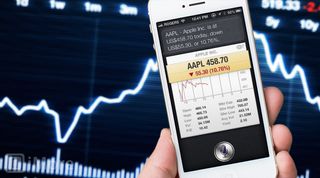What iPrefs are and why they could make sense for Apple

If you’ve been following the drama surrounding David Einhorn and his firm, Greenlight Capital, then this is all familiar stuff. If not, we’ve got the quick recap for you. A big hedge fund that owns Appel stock wants Apple to stop being so stingy with its cash and give some back to shareholders.
Yes, Apple pays a dividend on common shares, but Einhorn from Greenlight Capital argues that it isn’t enough. He’s probably right since Apple has way more cash than it needs. The business currently holds $137 billion in cash and is generating way more than it pays out in dividends these days. The cash pile is more than 30% of Apple’s market value, a higher ratio than Cisco, Microsoft, or Google (all cash-rich companies).
Einhorn feels that Apple shareholders aren’t seeing the value of all this cash. That’s because if a company holds tons of cash and isn’t paying out the cash (or using the cash), it tends to get discounted by the market. As evidence, he shows the ex-cash price to earnings multiples for several tech stocks. Apple trades at a lower valuation than Microsoft! The insanity of this seems obvious to me. It represents hidden value. Einhorn wants Apple to unlock this value.
One way to do this is just increase the dividend. But Einhorn has another fairly clever way to handle it. At first I didn’t really see the benefit, but I think I understand it better now and thought I’d share my simple explanation here.
Einhorn thinks Apple should consider issuing perpetual preferred stock to all shareholders. These perpetual prefs are something he has coined as being ‘iPrefs’, which is just a clever name.
Normally preferred shares have a maturity date. At some point in the future the company would have to buy them back from the shareholder. So a perpetual pref is just a preferred share with no maturity date. It’s an equity instrument that pays a fixed dividend every quarter.
Why is this a neat idea? Because the way these perpetual prefs would be valued is similar to how a perpetuity is valued. It’s a series of cash flows (dividends) with no growth. The value of a perpetuity is equal to the annual cash flow divided by the discount rate. In a very low interest rate environment (like we have today), and with a very low risk of default (because Apple is mega rich), the iPrefs would trade at quite a high price per share relative to the dividend.
Master your iPhone in minutes
iMore offers spot-on advice and guidance from our team of experts, with decades of Apple device experience to lean on. Learn more with iMore!
Importantly, they also preserve Apple’s cash balance. Because the prefs pay out dividends annually, they leave Apple with nearly all of its cash intact, while still being valued fully in the market. For example, if the iPrefs had a $2 annual dividend and traded at $50 per share (this implies a 4% discount rate), then shareholders would get the extra $50 up front but Apple keeps its cash too. It still pays out cash slowly.
If Apple issued one iPref to shareholders for each common share, it definitely could unlock a lot of value immediately. And by separating the dividend from the common shares, investors could choose for themselves whether to keep the iPrefs (and the income from them), or sell them in the open market and, for example, reinvest in more Apple stock.
Einhorn thinks Apple should start slowly, issuing one $50 iPref for each common share. His firm believes each iPref issued would unlock about $30 of value per share. Apple could eventually issue about 5 iPrefs per common share, unlocking $150 per share. This would be similar to doubling the current dividend, which his firm calculates would unlock only $65 per share (this assumes Apple stock would trade at a 4% yield, but I think it could easily trade at a lower dividend yield)
If Apple gave me this option I’d gladly sell the iPrefs and buy more AAPL common. No question. But I don’t really have a need for the extra dividend income at this point in my life.
It’s worth pointing out that if Apple traded at a lofty price to earnings multiple, people wouldn’t say the value of the company’s cash was being ignored. This idea is only a good idea because of the extremely low interest rate environment combined with the extremely low price to earnings multiple on Apple stock.
I say “only” ... but that doesn’t take away from the fact that it is actually a good idea despite the “silly sideshow” lawsuit (Tim Cook’s words) that Einhorn has initiated against Apple.
Former sell side analyst, out-of-box thinker, consultant, entrepreneur. Interests: Wife & kids, tech, NLP, fitness, travel, investing, 4HWW.
Most Popular






